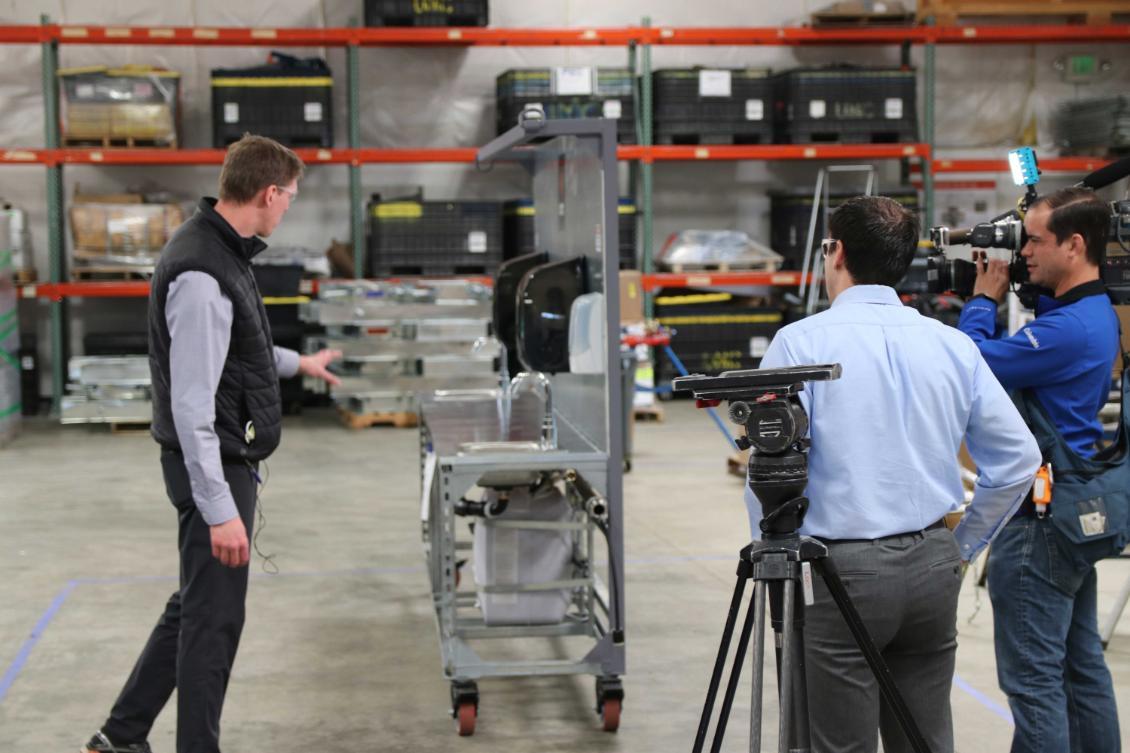As a result of the COVID-19 pandemic, universities have undergone a difficult transition from in-person to distance learning. Seattle University began remote instruction in March, and despite the disruptive nature of such a gargantuan shift, students, faculty and staff are making the best of a tough situation.
Provost Shane P. Martin, PhD, is helping to lead the university through this period of adversity. Reflecting on the student response to virtual learning, Provost Martin says, “The feedback that we’ve gotten from our students is that they are finding their courses to be highly engaging and they are finding the faculty to be accessible. Faculty are being creative and innovative. They are working very hard and we are so grateful to them. They’ve really stepped up at this time and they have done it for our students.”
Questions about the uncertainty of current and prospective students has shaken the higher education landscape. Universities have quickly pivoted their strategies for retention and admission as everyone attempts to project the future. High school students are also impacted by this uncertainty as they run into college preparation barriers. As spring and summer SAT and ACT exams continue to be cancelled due to coronavirus, many students are left unable to get the required testing preparation and exams necessary to apply to college.
The current challenges high school students are facing makes the implementation of the university’s planned test-optional admission policy more important than ever. “The best predictor of one’s future success is one’s current success,” says Provost Martin. “We need to look at things like GPA, the whole curriculum a student is involved in, their statement of intent, letters of reference and class standing.”
Beginning in fall 2021, first time in college applicants can choose not to submit standardized test scores as part of the application process. After analyzing issues around tests and test-optional policies for over a year before the COVID-19 pandemic, the university’s decision to enact a test-optional policy for first-time college applicants highlights the university’s desire to build an inclusive student body. Research indicates that standardized entrance exams are not the best indicator of how a high school student will fair in college. In addition, standardized tests can put high school students from marginalized communities in a disadvantaged position.
“There is a growing body of evidence that suggests that the standardized tests by their very nature and how they’re put together have an inherent bias. Culturally speaking, students that have had less access to the cultural capital that are referenced in these exams start out on an uneven playing field compared to those who have had more opportunities to be exposed to the topics in these exams.”
The university also hopes that this will create less uncertainty over admissions in the COVID-19 era, as students who have been unable to take standardized tests will still have the opportunity to gain admission to Seattle University.
While some have expressed concern that such policies may impact quality of education, Provost Martin is working to alleviate their apprehension. “This test-optional policy doesn’t change our commitment to inclusive academic excellence. It doesn’t change our commitment to high standards and to rigor. In fact, in many ways it only enhances it.
“This also fits us very well in terms of our commitment to Jesuit education,” says Provost Martin, “We talk about looking at the whole person – mind, body, soul, spirit – not just how you do on a standardized text. It’s very consistent with our mission, our values and who we are.”
As universities across the country are facing a decline in enrollment due to COVID-19, it is more important than ever for Seattle U alumni to advocate for their alma mater and educate prospective students on the benefits of a Jesuit education.
According to Provost Martin, “Alumni are among our most important ambassadors for the university. They can help Seattle U recruit prospective students by sharing their experience with their families, friends and co-workers – what they loved about this institution, what made a difference for them and what helped them achieve the success they experience today. It’s very important that our alumni see that this is a great way that they can give back to the university.”

 Communities across the United States are coming together to tackle the devastating repercussions of the COVID-19. Although social distancing and stay-at-home orders are working to flatten the curve and slow the rate of infection, many are still experiencing unprecedented financial hardships as a result of the pandemic.
Communities across the United States are coming together to tackle the devastating repercussions of the COVID-19. Although social distancing and stay-at-home orders are working to flatten the curve and slow the rate of infection, many are still experiencing unprecedented financial hardships as a result of the pandemic.